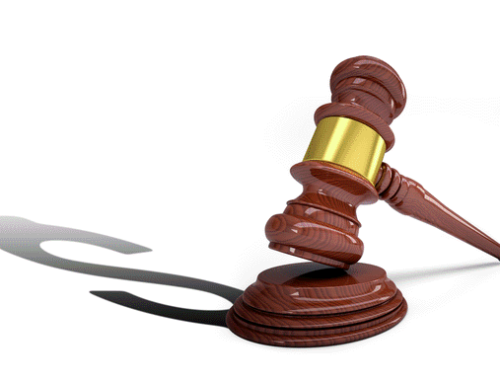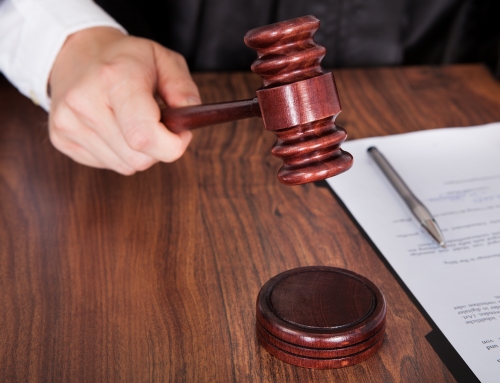A large part of our judgment collection law practice is collection of labor awards, or more specifically enforcement labor judgments. Essentially, these result when an employer fails to properly pay an employee for wages, overtime pay, or otherwise violates California labor laws. When this happens in California, a plaintiff can file a claim with the Division of Labor Standards Enforcement. The link to the website is here: Dept of Labor Standards Enforcement. The claim will be investigated by the labor board, reviewed by an administrative law judge, a hearing will be held, and a final determination. If indeed the employer failed to properly pay the employee, the department will issue a decision in favor of the employee, which will turn into an enforceable court judgment by operation of law. These judgments usually include thousands, sometimes tens of thousands of dollars in penalties and late fees against the employer, and are usually for double, triple, sometimes 5 even 10 times more than the amounts actually owed.
Attorney or no attorney?
The DLSE represents plaintiffs for free and does a good job- and let’s face it, attorneys don’t work for free. So why would a plaintiff use an attorney to prosecute a labor claim when the DLSE does it for free?
We have enforced many labor judgments, but more importantly, we have seen many labor judgments which are unenforceable because they are against a defunct company. The DLSE will generally only allow you to file claim against the exact entity that you have a contract with, or who has been issuing you your paychecks. If the company is about to go under, as often happens, your judgment against the business may end up not collectable case. An attorney may be able to sue the OWNERS of the company, OR an attorney may find the owners of the company are using a DIFFERENT business entity to hold the company assets, that is NOT THE SAME as the one that issues your paychecks. This is a typical “trick” that people play to avoid paying their employees, and the DLSE will almost never help you with this, whereas an attorney will.
So your decision to use the DLSE vs an attorney should be based on a few things: Is the business ready to go under? Has the owner of the business been using the business as his/her ‘personal piggy bank’? Is the owner the type of person who constantly starts new companies to avoid the debts of the old ones? If the answer to any of these is “yes” then you may want to consult a lawyer. If the company seems like it is doing OK and you believe it will be around in the future, and you believe the owners are not purposely taking debt avoidance measures , then you may save money going to the DLSE.
When a person wins an award from the DLSE, the findings are sent to the civil court and then become an enforceable civil judgment. You now need to enforce a judgment against the business.
Enforcement of judgment against business
Bank Account Lien
One option may be to levy the company’s bank account. When someone is paid using a check, it contains all of the necessary bank account information for the business and an employee needs only to look at his/her paycheck to know where the company account is. The court and the sheriff can assist with the paperwork, or you can consult a judgment collection attorney.
Till Tap
A person can request the court to enter a Till Tap order. In the state of California, a court can issue authorization for a county sheriff to visit a place of business. The county sheriff will then collect receipts, cash as well as checks in the amount of the award. To begin this process, there is sheriff paperwork to fill out (or a collection attorney can be consulted)
Property and Asset Lien
A person can make a request to the court for paperwork that will put a lien against the assets and property owned by a company. This lien will be issued by the court once all the paperwork is properly completed and returned. This will prevent a company from selling any of its assets or property without paying the CLB judgment first. This type of lien is designed to be valid against a company that may change its location. This lien will follow a business even if it is moved out of state.
Department of Labor Standards Enforcement
A person can contact the Department of Labor Standards Enforcement (DLSE) with their judgment and the DLSE works with the franchise tax board to enforce judgments. This process often takes far longer and has less success than using a private collection company or collection attorney (the government systems are severely overloaded due to cutbacks, and are less effective than ever nowadays), but it does work sometimes, and again, it is of course free, which is always nice.
Successful Collection
Ultimately successfully suing of an employer can be done on one’s own, or through an attorney, and the same with collection of the judgment- people can do it themselves, or hire attorneys.
In general, if a situation has complications to it, it is probably best to consult an attorney. The Evanns Collection Law firm consults with potential clients on these issues daily, and we never charge anything unless we take your case. Feel free to give us a call at 213-404-1002.









Recent Comments